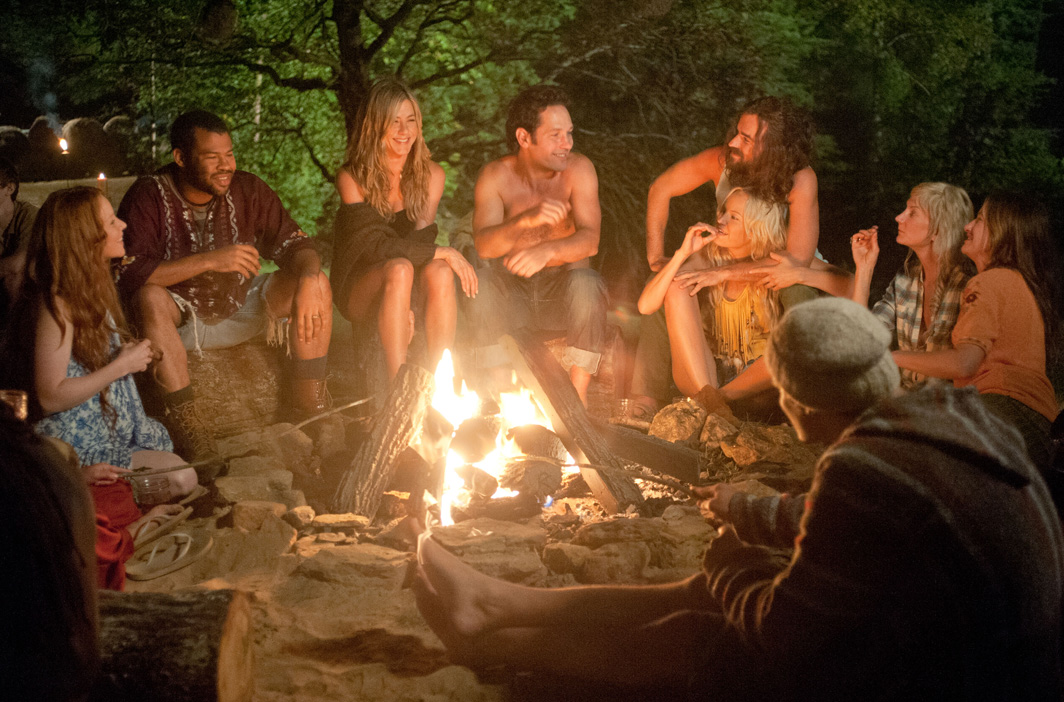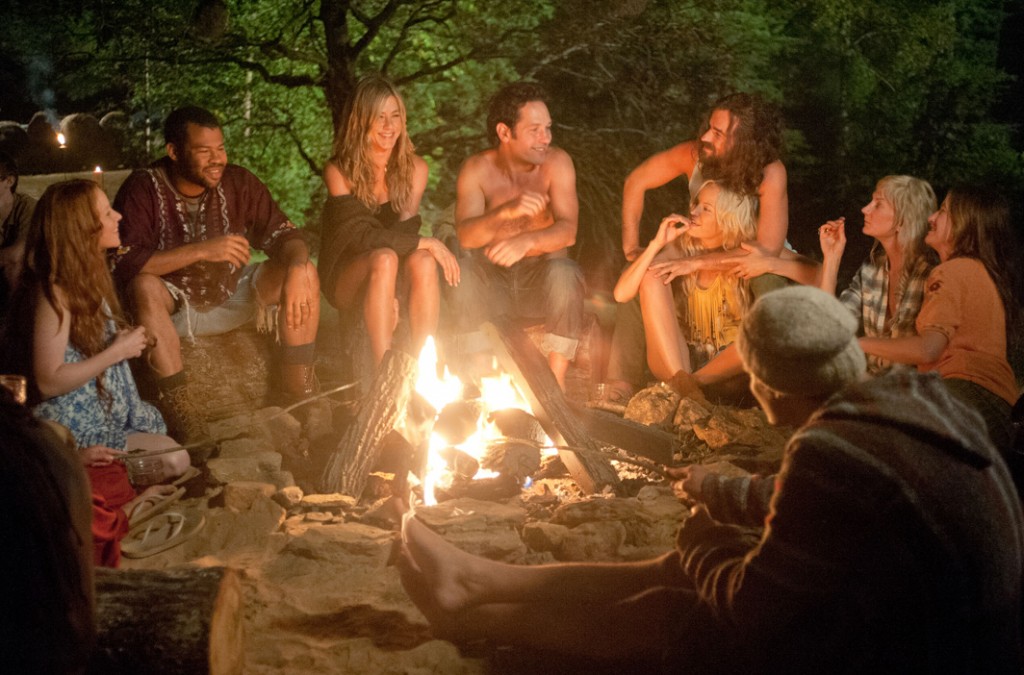This week we picked up Wanderlust on a whim from our local Redbox, without really knowing very much about it. We were pleasantly surprised to discover that it focused heavily on intentional communities, something that’s been coming up in conversation frequently lately.
After losing his job when his company is shut down, George and his wife Linda set out go stay with his brother, but happen upon this intentional community, where most of the comedy of this film takes places. Through the interactions among the members of this group, we got a chance to see both some of the good and bad that is associated with intentional living.
My first real experience with learning about intentional living came through Walden Two. Interestingly, many of intentional communities have actually come about and set up their system based on this book, for example: Twin Oaks and Los Horcones.
On a recent trip with fellow co-authors Jimmy and L, we actually got the chance to explore what began as a local intentional community, Fairhope, Alabama! Additionally, it is home to the Fairhope Organic School, which was praised by John Dewey, author of our current Book Club readings. Followers of economist Henry George, who lived in Iowa, banded together and bought land in Alabama in order to establish their community and base it on the single tax model:
“to establish and conduct a model community or colony, free from all forms of private monopoly, and to secure to its members therein equality of opportunity, the full reward of individual efforts, and the benefits of co-operation in matters of general concern.” – http://www.fairhopesingletax.com/
It is now one of only two singe tax colonies that remains in the U.S.! The idea was that land could be taxed for its full rental value and this would be the only tax paid. The government ran much more limited budgets at the time, meaning that this single tax could have paid for all of their operations. Although this single tax corporation still exists in Fairhope today, it suffered a huge set back during the Great Depression and never fully recovered.
Philosophically, what’s most interesting about intentional communities is that they serve as a model for an extremely practical application of ethics. The people who decide to come together do so with a goal or vision about what life should be like, and this vision reflects their personal ethics.
However, this begs the question: Why bother coming together to form an entire community based around this practical ethics rather than just attempting to live it within one’s own life?
Fairhope actually demonstrates the answer to this quite nicely – there are many aspects of ethics that cannot be enacted on an individual level. Tax, for example, is inherently communal. Therefore, the systems of ethics being implemented need more than one person or family to get them going.
This coming Tuesday, we’ll invite a new friend of Philosophy Matters, Clay Parks, to answer some questions about intentional communities. He is planning to start an intentional community in Missouri!
Have you ever experienced an intentional community? Would you consider living on in one? How would you set it up?

